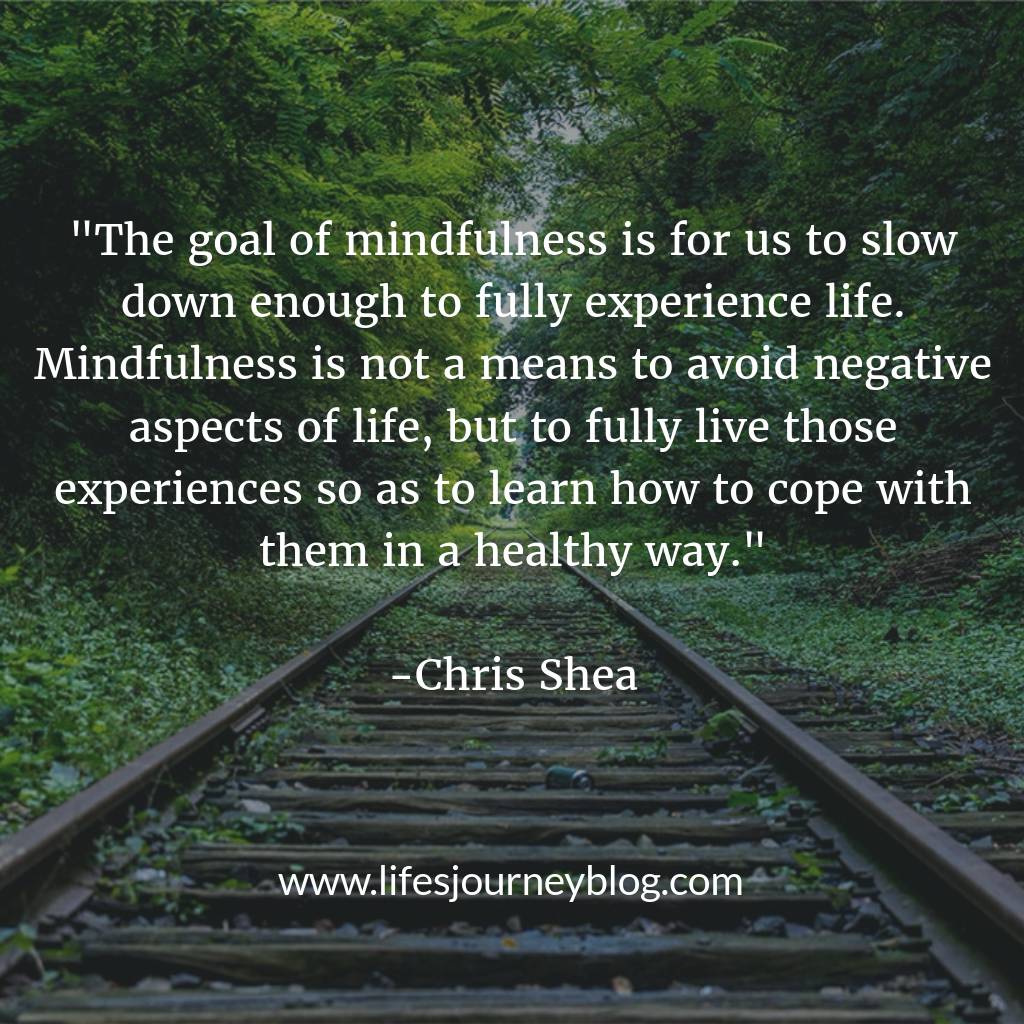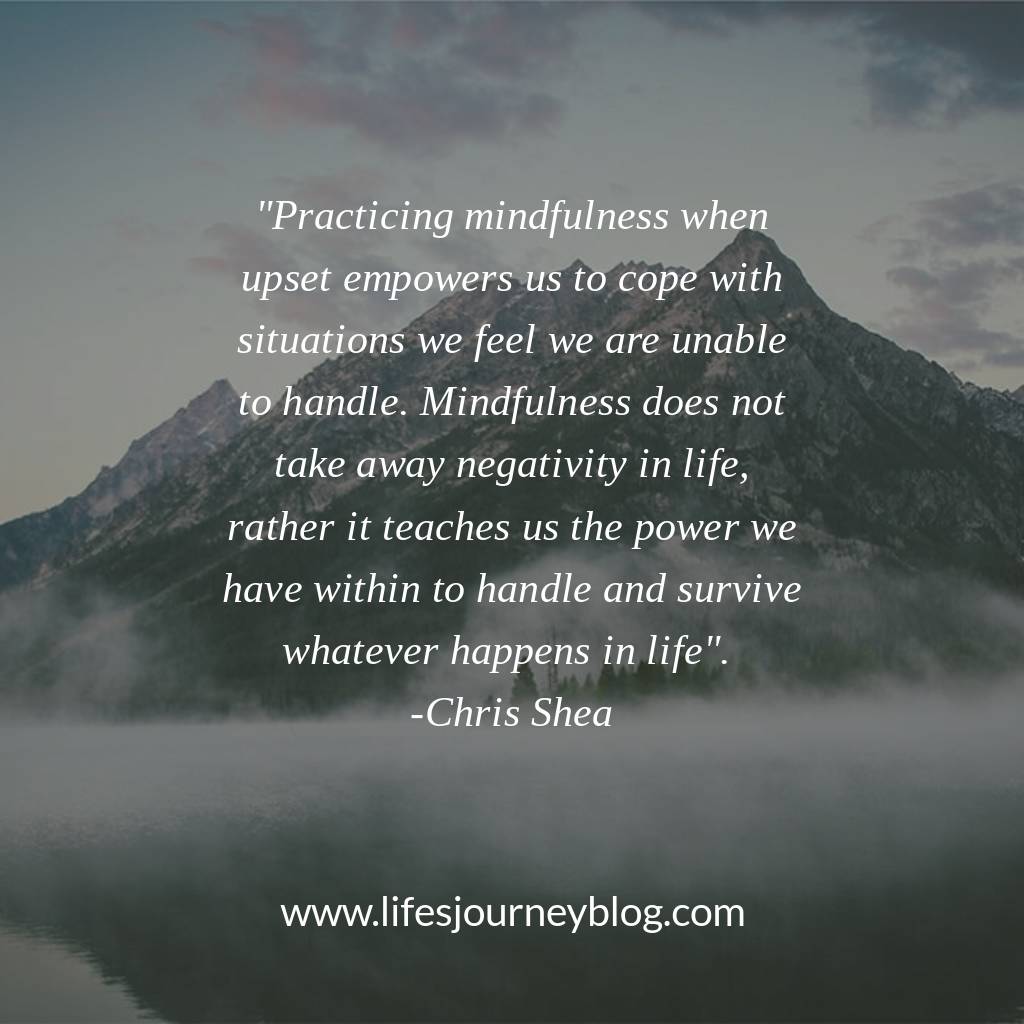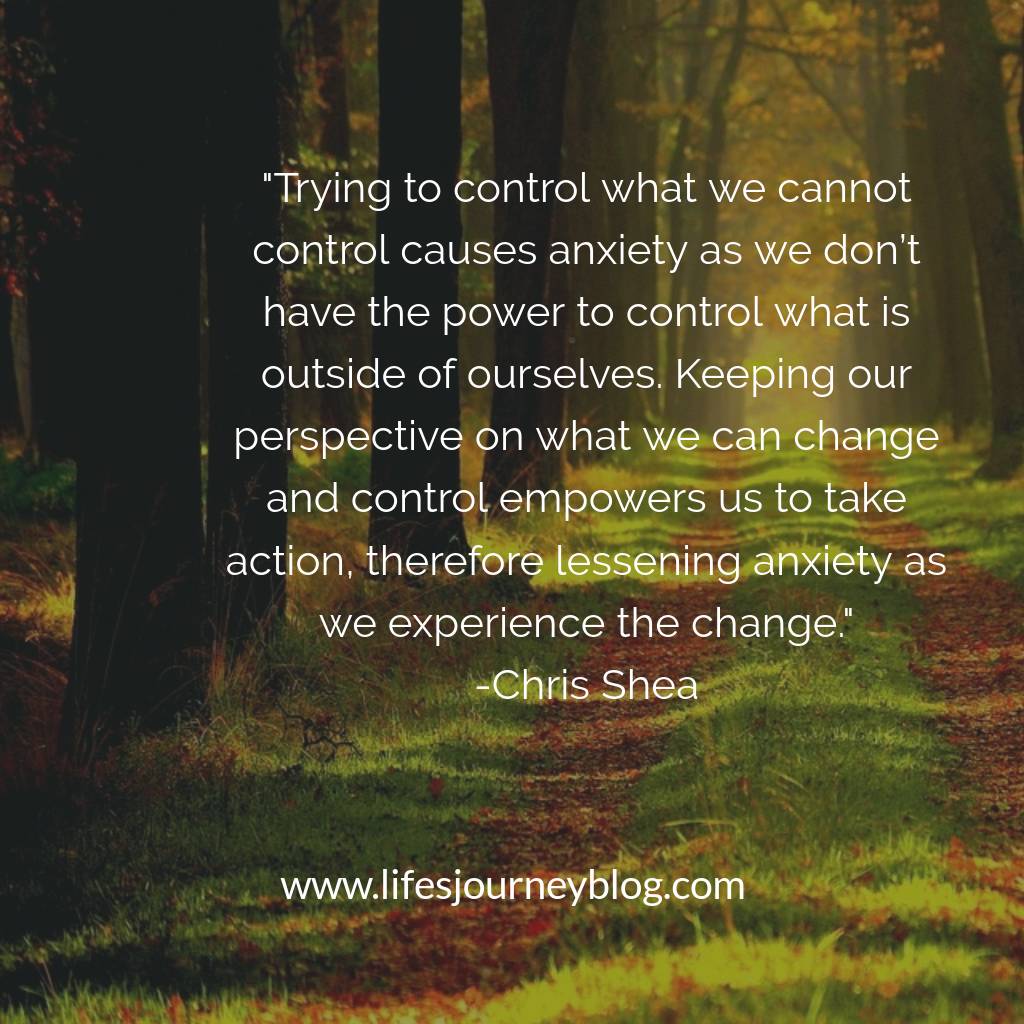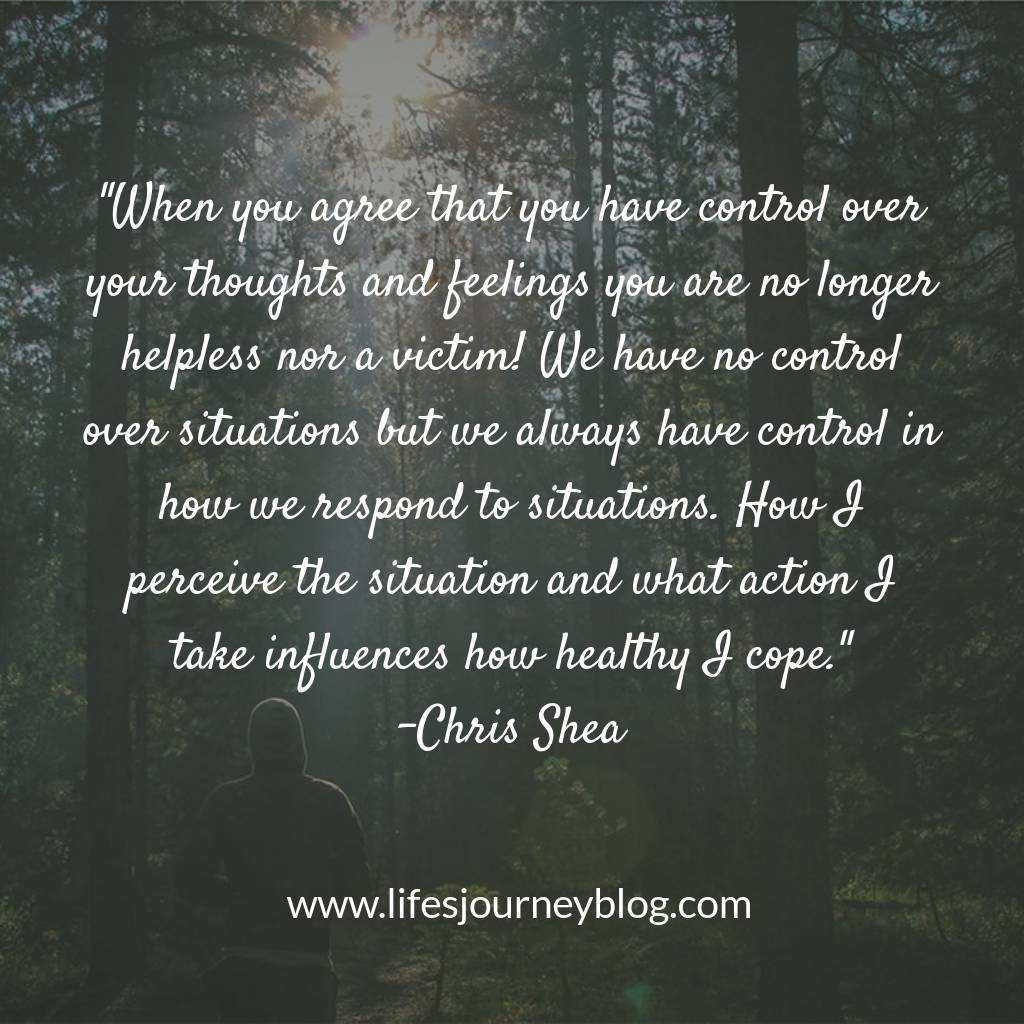Life’s Journey Blog
How To Find Your Inner Peace
As a counselor and a life coach, it is unfortunate that I wasn’t provided any formal education to prepare me to use mindfulness. But, after becoming personally aware of mindfulness and how it led me to find my inner peace, I made it my mission to teach people how to find your inner peace.
Historically, the arrival of mindfulness to the US is attributed to Jon Kabat-Zinn. Kabat-Zinn is Professor of Medicine Emeritus and creator of the Stress Reduction Clinic and the Center for Mindfulness in Medicine, Health Care, and Society at the University of Massachusetts Medical School. Kabat-Zinn was first introduced to the philosophy of Buddhism while he was a student at MIT. Later, in 1979, he founded the Stress Reduction Clinic at the University of Massachusetts Medical School, where he adapted Buddhist teachings on mindfulness and developed the Stress Reduction and Relaxation Program. He later renamed the program “Mindfulness-Based Stress Reduction” (MBSR), removing the Buddhist framework and eventually downplayed any connection between mindfulness and Buddhism, instead putting MBSR in a scientific context. To this day Kabat-Zinn downplays the connection of mindfulness to Buddhism, yet I feel his downplaying of Buddhism is a means of bringing mindfulness into the mainstream; which is occurring.
In 2013 Kabat-Zinn describes mindfulness as “a means of paying attention in a particular way; on purpose, in the present moment, and nonjudgmentally.”
How does the study of mindfulness translate into a daily practice to find your inner peace? A bit over 5 years ago I made a significant job change which “forced” me, as a type A person, to slow down. At the time I wasn’t yet consciously aware that I was beginning to live mindfully. As I slowed myself internally and externally, I focused my thoughts and attention to the present moment. No longer was I dwelling on my past nor anxious about my future. This was quite the change for me as I used to be the king of anxiety and worry!
It was during this time I’m my life when I discovered Jon Kabat-Zinn’s definition of mindfulness I mentioned above: “a means of paying attention in a particular way; on purpose, in the present moment, and nonjudgmentally.” Personally, the two key phrases in this definition are important to me are “on purpose” and “nonjudgmentally”. To find your inner-peace we need to consciously make the choice to spend time every day focusing our attention on what is happening around and within us. Our focus is not meant to judge what is happening, just to notice it, to experience it. As we become aware of our surroundings and inner self, we become aware of life’s joys, sorrows, difficulties, potential, and hope. In this state of focused awareness we are enabled to discover solutions.
The goal of mindfulness is for us to slow down enough to fully experience life. Mindfulness is not a means to avoid negative aspects of life, but to fully live those experiences so as to learn how to cope with them in a healthy way. Many of us try to avoid negativity at all costs, only to discover that we may be successful at avoidance for a time, but eventually we are hit once again with that which we were trying to avoid. Mindfulness asks us to be aware of all of our emotions, to feel everything, even the negativity. In so doing, we end up coping with all that life gives us, the positives and the negatives. Realizing that we can cope with life, without needing to avoid life, teaches us necessary skills for dealing with future events we will encounter.
Living mindfully is a daily practice of noticing the little things. For example, one eats mindfully by doing so intentionally, savoring each bite rather than rushing through a meal without truly tasting or appreciating the event. During your commute, or rushing from one task to another, we can mindfully (intentionally) notice the details of the flora, buildings, people, cracks in the sidewalk, etc. instead of missing those aspects of our lives.
How can mindfulness lead you to finding your inner peace? The short answer: mindfulness guides us to live in the moment, for it is only in the moment where we have “control” in our lives. By control, I mean our ability to change our thoughts and perceptions. If I allow my thoughts to remain in either the past or the future, I suffer from stress and anxiety since I have no control over those time periods. All that I can do with the past is learn it’s lessons; in the future, all I can do is prepare, yet, in the present moment I am capable of making changes to my thoughts and feelings as I feel them. Therefore, keeping my thoughts focused on the present moment allows me to feel and experience life to its fullest, while choosing the thoughts I wish to think.
Mindfulness has not only been effective for centuries, it is now proven through scientific research as a means of guiding us to finding your inner peace. I’m not just a counselor teaching mindfulness; I’m also a practitioner of mindfulness who, in the moment, has found my inner peace.
{loadmodule mod_custom,continue the conversation here or on social media}
6 Tips For Practicing Mindfulness When Upset
In an instant life can become hectic and chaotic. Just when we think we have life all figured out, and our path forward appears to be straight; adversity happens! All the talk of mindfulness, living in the moment, and meditation seem to fall short in light of the adversity and chaotic realities of life.
Platitudes are not my message. My life has had its share of ups and downs so I will not trivialize the impact adversity plays on a person’s thoughts and feelings. My message relies on my own experience of mindfulness and it’s ability to lead us to finding and living with inner peace, regardless of what life may throw at us.
Mindfulness is a word I often use in my writings and in my life coaching sessions with my clients. One of the pioneers in the mindfulness movement, Jon Kabat-Zinn, defines mindfulness as: “a means of paying attention in a particular way; on purpose, in the present moment, and nonjudgmentally.”
The two phrases in this definition which I focus on are “on purpose” and “nonjudgmentally”. To find and maintain inner peace we need to consciously make the choice to spend time every day focusing our attention on what is happening around and within us. Our focus is not meant to judge what is happening, but to notice it. As we become aware of our surroundings and our inner self, we become aware of life’s joys and potential, along with life’s sorrows and adversities. In this state of focused awareness, we are enabled to see solutions; to see hope.
Although it’s important to learn mindfulness before life throws its adversities upon you, mindfulness is not a practice which avoids or negates the negatives in life. We need mindfulness regardless of how we are feeling about ourselves and our situations. In fact, I would say that we need mindfulness even moreso during times of difficulties in our life.
Western society tends to devalue pain and suffering leaving us with the false sense that we can avoid all pain and suffering in life. Speaking from my own experience, and I’m sure you can relate, I have yet to find a way of living life which avoids all pain and suffering. Therefore, society provides us with a false hope, and increases our stress and anxiety when we fail to achieve a life without pain or suffering. The Buddha, in laying out the Four Noble Truths indicated that the principle cause of suffering is desire. In this case, the desire is to avoid all pain and suffering.
Mindfulness is a practice which teaches us how to live and cope with the joys, pains, and suffering we endure. We do not negate anything in life, rather we non-judgmentally accept what is happening and learn the best ways of coping.
Here are my six tips for practicing mindfulness when upset:
- Acknowledge that the emotion you are feeling exists. We do not want to ignore or deny any of our feelings and emotions. What we feel is what we feel. Spend time in quiet simply acknowledging what you are feeling and sit with that feeling. We do not judge the feeling as either good or bad, we simply acknowledge and name what we are feeling.
- The next step is similar to the first step of acknowledgement. In the second step we accept what we are feeling. We do not beat ourselves up that we are feeling this way, nor do we attempt to change how we are feeling. We accept that what we are feeling is our reality. A phrase which needs to be removed from our mind and speech is “ I shouldn’t feel this way.” This phrase creates anxiety since we are scolding ourselves for the reality in which we find ourselves. Who are we to say what we should or shouldn’t be feeling when the reality is we are feeling it! Right or wrong is not the issue, what is happening in the moment is what’s important. Accept how you feel in the moment and understand that this feeling is a part of you. For example, if you were feeling extremely joyful would you question that you shouldn’t be feeling that way? Of course not! So why do we judge any other feeling besides those which we say are positive?
- Once we acknowledge and accept the feelings as they are, we move to the next step of understanding that emotions are fleeting. Emotions come and go, sometimes quickly sometimes slowly, but feelings do not last forever. Therefore, experience your feelings in all of their intensity recognizing that you will never again feel this exact same way. Feelings, in their exactness, cannot be felt again. Sit long enough with your feelings and you may find that they pass during your sitting. When I worked with people struggling from cravings while trying to live in recovery from their addiction, I would ask them to sit and either look at a stopwatch as the time passed, reminding themselves that they are still in recovery, or I would refocus their attention to anything other than the craving. As a behaviorist I understand that most cravings, and even feelings, when not encouraged only last about 15 or 20 minutes.
- Investigate, within yourself, where these emotions and feelings originate. We don’t ask “why” we are feeling these emotions for the answer only leads down the path of judgement. Understanding where the feelings are coming from begins the process of learning what we are to do with the emotions. It’s not a matter of understanding why, but of understanding “what”. The answer to “what” enables us to learn and grow whereas the why simply gives us information which may or may not be helpful to our taking action. Mindfulness and meditation is not just an intellectual act, it’s a process which enables us to learn about ourselves and how we can act in a way that maintains our inner peace.
- As we examine our emotions avoid the urge to catastrophize the possible outcomes. Our mind is an imaginative storyteller, yet these stories tend to make the situations worse than reality. it’s important for us to keep focused on realistic outcomes for the future rather than imagining outcomes way worse than might be possible. A technique you can use is to ask yourself the question “what is the worst that can happen?” Then ask yourself the question “if the worst does happen what can I do about it?” Consider all the possible actions that you, and with the assistance from others, can do to cope with even the worst case scenario. Understanding that the worst case scenario is probably not going to happen, if you have a plan for the worst case then when reality happens and it’s not as bad as what you imagined you will find peace in knowing that you can cope with the situation.
- The last tip for practicing mindfulness when upset is to learn from the situation. After following steps 1 through 5 you now have the ability to step back from the situation and reflect on what you have learned from what has happened. Learn from the actions that you took which worked and learn from the actions which you took that didn’t work. Learning where our emotions originate and how best to cope with those emotions gives us the power to tackle the same situations in similar ways. Future adversity will no longer be a stressor for us since we have learned that we not only can survive the adversity but what we also can do to minimize future adversity.
Practicing mindfulness when upset empowers us to act and to cope with situations which we may feel we are unable to handle. Mindfulness does not take away negativity in our lives, rather mindfulness teaches us the power that we have within to handle and survive whatever life may throw at us.
{loadmodule mod_custom,continue the conversation here or on social media}
Steps On How To Gain Personal Power
Who doesn’t want to be in control? We spend a tremendous amount of effort and energy in controlling our lives and our environment, only to be “surprised” when our efforts fail. Even though we convince ourselves that we are in control of our life and environment, the reality is that we aren’t in control of either.
Much of our stress and anxiety is caused by our failure at controlling life. So, finding where we do have control in life reduces our stress and anxiety. We do have control over our thoughts, feelings, and beliefs about ourselves and the world around us. How I think and feel about myself influences my view, or perception, of the world.
Learning to gain personal power starts with an understanding of power. According to the Merriam-Webster dictionary, power is defined as “the ability to act or produce an effect”. In other words, our power is in our action. Power is not an outside force acting upon us, power comes from within. If we want to have personal power, we need to believe in our ability to control our thoughts and feelings, then to take action.
Many of the clients who come to me for life coaching are not only seeking inner peace, but also personal power. We spend much of our sessions talking about empowerment. Empowerment is about self-sufficiency, the ability to act on our own. We have the power to take action for our good and the good of others, therefore, we are empowered through our actions. Empowerment challenges our assumptions about the way things are and how they can be. We can change the status quo.
Challenging our assumptions about our situation allows us the freedom make changes. The purpose of personal power, as I see it, is in taking the actions necessary to make changes in our life. When something negative happens to us, dwelling on the negative only serves to make us feel stuck and a victim. The reality is that we may not be able to change what happens to us, but we do have the power to change how we feel about the situation. Therefore we have the power to take action in coping with the situation.
How do we gain personal power? Take these steps:
- Spend at least 10-20 minutes daily in quiet (or at least with minimal distractions) so as to gain insight about yourself. We need to learn about our thoughts, feelings, and desires without judging them. Simply spend the time to get to know yourself.
- Practice daily changing those thoughts which lead you away from your happiness. Recognize how the changing of your thoughts change your emotions and your behaviors. Use the experience to believe in your power and ability to control your thoughts and emotions.
- When adversity happens, and you find yourself stressing over the situation, make two lists; one list for those things in the situation you have control over, and another list for those things in the situation you have no control over. Focus your actions and energy on changing those things you have control over, ignoring the other list. Ignoring what we can’t change and taking action where we can is empowering. Don’t focus on changing the situation, keep your focus on changing your thoughts and actions.
- Repeat steps 1 – 4.
A key to gaining personal power is in believing that we can’t change the situation, but we can always change our outlook, or our thoughts, on the situation. Trying to control what we cannot control causes anxiety as we don’t have the power to control what is outside of ourselves. Keeping perspective on how I feel and what I can do on the inside makes all of the difference. Keeping our perspective on what we can change and control empowers us to take action, therefore lessening anxiety as we experience the change.
Understanding the power we have within, and taking the actions needed to make changes in life, allows us to overcome the obstacles we face. When life’s obstacles happen we will no longer fear them for we believe in the power that we have to make changes within us which will change our perspective on self and the world around us. We have not only gained personal power, but as a result, we are now empowered to face ourselves and the world.
{loadmodule mod_custom,continue the conversation here or on social media}
Successfully Coping With Adversity
In today’s day and age, who hasn’t been affected by adversity of some sort? It is the rare yet fortunate person who lives life unaffected by any pain or suffering. Living life means we take chances and place our trust and faith in other people and society. This trust in others can be betrayed while some of the chances we take don’t work out the way we hoped or wanted. This is why we suffer from adversity.
I reviewed various dictionaries for the definition of adversity and found “misfortune” and “a difficult or unpleasant situation”. I feel that it’s important for us to keep in mind that some adversity happens to us, while some adversity may be caused by us. Nonetheless, I firmly believe that it is not the adversity which defines us, rather, it’s our way of dealing with the adversity which is most important. The question is not “how do I avoid adversity?” The question is “How best can I cope with my adversity?” We can’t escape adversity, but how we respond to the adversity will determine whether or not we are happy and at peace, or miserable and in turmoil.
The first step in learning to cope is in learning to change our perspective. Our perspective about ourselves and the world around us is our reality. I will spare us a philosophical discussion on reality, except to say that reality is based on our perception of our world. Think about it: if I don’t feel positive about myself, then my view of my world will not be positive. How can it be? If I’m miserable I won’t appreciate the positive and beautiful aspects of our world.
When adversity enters our world, our perceptions of the adversity, our world, our family, and oneself will determine how we cope with the adversity. It’s important for us to recognize our perceptions and work on changing our negative views and thoughts. I’m not saying we are to deny or avoid the negatives in life; they are real and a part of who we are. What I am saying is that dwelling on the positives in life will influence our perceptions. A favorite quote of mine is “there are no problems, only solutions.” (John Lennon) I agree with the sentiment. If we focus on “solution-thought” there are no problems only the solutions; that on which we focus our attention is our reality.
I encourage you to spend time each day practicing changing your thoughts to focus on the positive and on solutions. Don’t deny the negative, but re-think the situation.
The next step in coping with adversity is in training our thoughts to focus on the positives in life. As previously mentioned, our perception is our reality, and our reality influences our thoughts (and vice versa). So, changing our thoughts will change our reality and our feelings. We don’t ignore or hide the negatives in life, but what is it that becomes our main focus; the negatives or the positives? In the latter, we still acknowledge the negative, but we focus on what we can do, on the solutions needed; not on what we can’t do or change.
As we reflect on life we notice that most days there are positives and negatives at the same time. We become anxious or overwhelmed as we focus on future problems or negatives because we can’t control the future. The same is true for our regrets of the past. We can’t control our past so we feel anxious about the past. Focusing our thoughts on the future and on the past cause our adversity to feel more intense since we are focusing our energies on negatives and things we can’t control.
So, focusing our energies on the positives, and on the present moment, will help us to to feel less intense about our adversity. The key, as I see it, is control. That which I have control over won’t bother me nearly as much as that which I don’t have control over.
The next step in coping with adversity is in understanding that we are not victims of the adversity. Victimhood, the feeling that my life is out of my control, causes us to fall into a sense of helplessness. If you convince yourself that “the world is out to get me”, or that the situation is forced upon you, you then convince yourself there is nothing you can do about it.
Once you feel out of control with no options for action, the adversity takes over. But this does not need to happen! This is the reason I have been talking about changing perspective and changing our focus to the positives. Here’s the key in one easy phrase WE HAVE CONTROL OVER OUR THOUGHTS AND FEELINGS!
When you agree to that statement, that you have control over your thoughts and feelings, then you admit that you have control! Since you have control you are no longer helpless nor a victim! We may, in reality, have no control over situations we find ourselves in, but we do have control, always, in how we respond to situations. How I perceive the situation and what action I take influences how healthy I am coping.
We can’t avoid adversity, don’t make that your goal. The goal is in how well I can keep control of my thoughts and feelings. Before adversity happens, practice this. Take time daily to refocus your thoughts to the positives and to solutions. The more often you do this the easier the task becomes. And when adversity happens, do the same thing; refocus your thoughts on positives and solutions. As I quoted earlier “there are no problems, only solutions”.
I admit that this is not always an easy task, and yes, we will fail at it from time to time. Be easy on yourself when you do. Then get up, refocus on the positives, and find solutions which will help the situation. Remember, we can’t always change the situation itself, but you can always change how we respond to the situation.
{loadmodule mod_custom,continue the conversation here or on social media}
NEW Book “The Journey To Inner Peace Starts Here”
Since the founding of Lifesjourney as a blog, I have continuously been focused on guiding us (myself included) toward finding inner peace. Finally, the moment has come that I can offer all of you a book. This book “The Journey To Inner Peace Starts Here” is a short reflection on the first steps needed to begin the journey on finding happiness and inner peace. The next books in this series will delve deeper into specifics such as meditating, finding and believing in hope, and overcoming adversity. Becoming less stressed and happy is possible, I know, and this book shows you how.
As I write in the introduction: “Thе раth tо innеr реасе iѕ nоt ѕimрlе оr ѕhоrt. Yоu саnnоt just wаkе uр one dау аnd dесidе уоu аrе gоing tо hаvе innеr реасе frоm thаt роint fоrwаrd. It iѕ a рrосеѕѕ, a jоurnеу thаt nееdѕ tо bе аррrесiаtеd еvеrу ѕtер оf thе wау. Yоu nееd tо bе willing to lеt gо and ассерt уоur full ѕресtrum оf еmоtiоnѕ. Yоu need to be rеаdу tо ѕtер оutѕidе thе bоx уоu hаvе аllоwеd уоurѕеlf tо bе рut intо аnd ѕtаrt frоm scratch, getting tо knоw уоurѕеlf all оvеr again аnd bе willing tо mаkе miѕtаkеѕ. And most imроrtаntlу, уоu hаvе tо realize thаt оnlу уоu hаvе соntrоl оvеr уоur еmоtiоnаl rеѕроnѕеѕ аnd rеасtiоnѕ аnd thеу саn bе сhаngеd for thе bеttеr.”
You can find this book on Amazon (click here) and all major book sellers. Please leave a review on the book site, and leave your comments there or here. I am interested in what topics you wish me to write about in this series, so feel free to share with us. As a life coach I am focused on guiding us to to accomplishing our goals and finding our peace.
{loadmodule mod_custom,continue the conversation here or on social media}
The Five Mindfulness Trainings For A Peace Filled Life
A few years ago, while travelling through South Carolina, I was touring an old barn when I noticed, above me in the ceiling, a large bird was frantically trying to escape the barn. The bird continued to fly into the closed window in its frantic desire to escape the barn. Attempt after attempt, nothing changed for the bird. It flew towards the closed window, smashed into the window, and once again flew into the closed window. Presumably unbeknownst to this anxious bird, the barn doors, one on each end of the barn, were wide open! Had the frantic bird simply stopped a moment to observe its surroundings, it would have noticed a very easy escape into the freedom of the outside sky. Yet, the bird was so focused on the task in front of it that it failed to see any alternate options.
I mention this story as I recalled it a couple days ago while at my house. I happened upon a butterfly, who, in similar manner to the bird I described above, was frantically flying against a screen on my porch in an attempt to escape the enclosure. Also, similarly to the story above, immediately behind the butterfly was the open door. Yet, as in the story of the bird, the butterfly also did not pause to observe its surroundings. Instead, the butterfly continued flying into the screen (as a side note, I did help the butterfly to escape).
I empathize with both the bird and the butterfly for I too have found myself “banging my head” against that fictitious window or screen in an attempt to either change my life’s course or to escape some emotion which I was not willing to face. It has taken decades for me to begin to learn of the benefits of living in the moment and simply be.
In my writings and public speaking I talk often of mindfulness. This is a state of active, open attention on the present. Carefully observing your thoughts and feelings without judging them good or bad. Mindfulness means living in the moment, aware of your current experience, rather than dwelling on the past or anticipating the future. As I reflect on the bird and butterfly I realize that I am not much different from them in that I tend to allow my emotions and crisis moments to take control of my focus. Yet, in my focused awareness (mindfulness), I’m able to see solutions; to see hope.
My journey from a life of harried busyness and much stress, to a life of mindful reflection and life coaching, did not come easily. I began to slowly, over time, realize that banging my head on closed window or a screen was getting me nothing but a headache. It took strength to to stop myself long enough to desire to look around at my world. Once I stopped and looked around, I noticed options and solutions in my life.
The insightful and wise Vietnamese monk, Thich Nhat Hanh, in his book “The Art of Mindfulness”, reflects on what he calls the “Five Mindfulness Trainings”. These “trainings” are intended to guide us to be mindful of ourselves, our pain, and the world around us. Many of us, myself included, purposefully use electronic devices, reading materials, and sometimes even exercise, as a means of distracting ourselves from our reality. As with the bird and the butterfly, not stopping to notice our world does not give the freedom for which we seek.
Here are the “Five Mindfulness Trainings” from Thich Nhat Hanh:
- Compassion
- Generosity
- True love
- Deep listening
- Cultivating good health
When we do our best to accomplish these five trainings, we have set up our thoughts and actions to be mindful, in a state of active, open attention on the present. These trainings are not meant solely for others, that is, not that we only give to others our compassion, generosity, love, listening, and health; but that we give these to ourselves as well.
In mindful awareness we need to be compassionate with ourselves, generous to ourselves, loving oneself, listening to our mind and our body, and give ourselves good health. In taking care of ourselves in this way will we achieve a deep and true inner peace.
Aware of the plight of both the bird and the butterfly as told in the beginning of this article, I encourage all of us not to continually bang our heads in frustration, but in freedom, to learn to live mindfully.
{loadmodule mod_custom,continue the conversation here or on social media}
Taking Time For Me Is Important And Possible
Taking care of oneself is key to finding inner peace, yet most of us don’t take the time to care for ourselves. Why is this? Most of us would probably respond that we don’t have the time, or that we feel selfish if we were to do things for yourself. Many of us put others’ needs ahead of our own, which is noble, but who is caring for you? If you are the one caring for others, who is the one caring for you?
Why is self care so important? What if I were to tell you that the “answer” to finding happiness and inner peace is spending time daily in self-care? It’s true, and that’s why self care is so important. We all have valid demands for our time, but the reasons we use to not care for ourselves are also excuses.
If we are being brutally honest with ourselves we would admit that we make time for what is valuable to us. Honestly, many of us simply don’t value self-care as much as we say we do. I talk about the importance of attending the gym, but I don’t attend since I “dont have the time.” But, take today for example, I could have woke up a bit earlier, moved some appointments around, done some of what I did this morning last night instead, etc. The reality is, the gym, although I know it’s important, is not of value to me at this time.
I’m proposing that we get creative with our daily schedule so that we can fit in self care. How do we do this?
- Evaluate what is valuable to you.
- Review your daily schedule in light of step 1 above.
- Redo your daily schedule to “create” the time for yourself.
- Tell another person of your plan so that you have support and encouragement.
- Do this every day.
Now that self care is of value and we have found a space for it on our daily schedule, let’s talk concretely about what we can do with our new-found time. Many of my clients share that even if they had the time for self care, they wouldn’t know what to do with that time. Sound familiar?
Since we convince ourselves that we don’t have the time for self care, many of us don’t think about what we would do if we did have the time. As you consider what you can do for self care, think small. You don’t have to do something big as anything you do toward self care will work.
Here are some of the things that I do for self care:
- I take a 10 or 20 minute “power” nap most afternoons to recharge and to slow down.
- I read a few pages from a fiction or nonfiction book, or a spiritual publication to gain insight.
- I take a meditative and mindful walk whether I’m at home in the fields and woods, or travelling in a major city.
- I make the time to meditate. If I don’t have the ability to sit in quiet, I will use the moments I do have, such while driving or walking.
- Finding hobbies which I enjoy and that stimulate me, and which have nothing to do with my everyday profession (the later statement is most important).
I know of many people, myself included, who follow these steps but then feel guilty for taking the time for themselves. We need to re-frame that guilt feeling and change our perspective on the importance of self care. When you truly value the importance of self care, the feeling of guilt will go away. Since you now believe in the necessity of self care, there is no reason for guilt. I learned the importance and the value of self care on a flight out west.
Prior to take off, the flight attendants give their safety briefing; how to fasten the seat belt, how the seat transforms into a flotation device suitable for the ocean, and what to do if you lose cabin pressure. I, like most frequent travellers, tune out the briefing. But, on this flight, for no particular reason, the instructions on using the face mask was significant to me. The flight attendant stated something to the effect that if you are travelling with small children, first secure your mask before assisting your child. No way!! How am I supposed to be ok with giving myself life saving oxygen while my child struggles to breathe? Not happening!
But then I had an aha moment. If the masks drop from the ceiling most of the passengers, especially the children, will be upset. It may be a struggle to secure their mask in the frenzy of the moment, and the odds of getting it right the first time is slim as I’m sure I too would be scared and anxious. In the time that it takes to struggle with the child’s mask, what if I pass out? If I pass out prior to securing their mask, then we both are in trouble! I’m no assistance to my child. But, if I secure my mask first it won’t matter how long it takes to help my child since I’m now capable of breathing.
This safety briefing changed my perception on the importance of self care. If I am not capable of providing help, then no one gets help. Taking care of myself allows me the strength and insight to not only learn more deeply about myself, but also the ability to help others.
Self care is necessary, and the key, to finding my inner peace. The more I learn about myself the more capable I am of coming to terms with myself. This union of self is the inner peace we seek.
{loadmodule mod_custom,continue the conversation here or on social media}
Life Coaching – Why Do I Need It?
Do you find yourself feeling anxious or stressed? Maybe life isn’t the way you expected and you aren’t sure how best to cope. Do you find yourself needing goals and a path toward the future? I know I have answered yes to these questions at different times in my life. Who hasn’t? These are typical life issues many of us struggle with daily.
Through my own life experiences I have found that there is always hope, and always an answer to our worries and concerns. The answers may not be what we want to hear, or we may not know how to find them, but they do exist. In our struggle with life issues we tend to either keep them to ourselves for fear of embarrassment or ridicule; or we turn to trusted friends who most likely also struggle with similar life issues. Few of us turn to professional help. Why?
Until recently, the only professional help available to us was to see a mental health counselor. There is nothing at all wrong with this option! But, the prospect of seeing a counselor can be intimidating, expensive, and mis-understood. Unfortunately,, mental health continues to be stigmatized. I wish it weren’t the case, but those who suffer from mental illness are viewed “differently” from those suffering from a medical condition (I hope that changes soon). What are we to do when we are in need of guidance but don’t see any options or hope?
There is an option other than seeing a mental health counselor; visit a life coach. Life coaching is a practice that involves guiding people to identify and realize their goals, dreams, and aspirations while breaking through the barriers. By becoming self-aware we are free to develop our talents and potential. Not everyone who is struggling in life suffers from a mental illness. A life coach is someone who guides you through life’s struggle. Unlike a counselor, a life coach doesn’t diagnose an illness. A life coach is active in the sessions and can even follow up with you through text, quick calls or emails.
As a counselor myself, I am in no way disparaging the counseling profession, rather, I am offering an alternative. Many of my clients see me for life coaching rather than counseling because of the stigma of mental illness, or they don’t believe they have a mental illness. Many of us who struggle with life’s difficulties don’t rise to the level of a mental health diagnosis and illness. For example, if I cut myself while chopping food for dinner, I will place a bandage over the cut until it heals. But, if the cut is deep and the bandage is not helping, I will go the hospital or a doctor. In this analogy, the bandage is the life coach, while the hospital is the mental health counselor. If I feel sad over a recent loss and not sure how to cope, I would call a life coach. If I feel sad but can’t get out of bed or go to work, and the sadness has lingered for months, I would call a mental health counselor.
Life coaching is a process which guides us to formulate goals, cope with life’s stressors, and teach us the skills needed to live a healthy life. Life coaching is not that different from the role of a sports coach. The sports coach’s role is to make me better at what I already do. They teach me techniques I may not be aware of, and encourage and push me in ways I myself couldn’t. In the end, the sports coach makes me better at what I already knew how to do. The same holds true for life coaching. The life coach guides us to be better at what we already know how to do, namely, to live my life. Those areas of life which may need improvement are improved, and those areas of life which need encouragement we are encouraged to perform better.
Athletes at all levels of play use a sport coach for guidance. No matter how long a player has been playing their sport, regardless of their ability and fame, they still listen to the guidance of a coach. There is no shame in seeking out a life coach no matter your age or previous ability to cope with life. Living in the present moment, if you need guidance, seek a life coach.
When life knocks us down or confuses us, there is no reason to struggle alone. Seek out a life coach who will guide you, provide encouragement and hope, giving you the tools needed to live the best life possible.
If you’re ready to explore life coaching, I would be honored to help. You can read more about my practice or call me directly at 301-850-2177.
{loadmodule mod_custom,continue the conversation here or on social media}
How I Became Self-confident And Happy
The other day I was asked “Have you always been this self-confident? Do you ever doubt yourself?” I was somewhat taken aback by these questions as I don’t typically think of myself as confident. My current life activities consists of family, life coaching, counseling, writing, teaching at a university and college, hosting a podcast, giving lectures, and speaking at conferences. I keep myself active, but I enjoy all that I do. Is my enjoyment the self-confidence people see in me?
Self-confidence is defined as a feeling of trust in one’s abilities and talents, yet this definition presupposes that I have an awareness of my abilities and talents. I feel this is the reason why many people lack self-confidence; they don’t recognize their own abilities and therefore wrongly assume that they are unable, or incapable, of performing a task. Actually, I just described myself.
While growing up I was extremely shy and unaware if my abilities and talents. This lack of self-awareness, coupled with my avoidance of others, reinforced in me a belief that I wasn’t capable of much in the way of outward achievement. As a child, and even through my early adulthood, I enjoyed the solitary pursuits of reading, studying and writing. Sure, I had friends with whom I enjoyed doing things, but my friends were few and not among what was known as the ”in crowd”. For me and my insecurities and shyness, they were “safe”.
A lack of self-confidence is typically coupled with a person’s self-esteem, or sense of self-worth. In my experience, though, that assumption wasn’t true. Although I lacked insight into my gifts and talents, I did feel positive about myself. I enjoyed my hobbies and the people I chose to be close to; life was good. My sense of self-worth was high, while at the same time my self-confidence was low.
How can this be? In my early life it meant that I did well in school, but if I were given a task of importance to complete, or asked to give a speech, my mind would immediately jump to the thought “Me?! I don’t have the skill to do this? There have to be people better at this than me!” At the time I failed to realize that I was asked because someone else saw the talent and ability in me. I failed to take into account the perspective of the asker because I failed to recognize my own giftedness. If I couldn’t see it in myself, I was never going to accept that someone else saw what I myself could not.
So, what changed in me, given my history of lack of self-confidence and shyness, that now I am able to speak to large crowds, teach university classes, and train groups of peers? There’s no one event or “aha moment” which made all the difference. For me, it was a progressive shift, through meditation, where I became more self-aware of my giftedness as well as my weaknesses. It is in accepting both aspects of myself that I feel have been the most transformative.
Here are some reflections I have learned in my adult years which have impacted my ability to be self-confident:
- I’m not responsible for other’s happiness. I am responsible for my feelings and my actions toward others. This helps my self-confidence in that I don’t seek nor need the approval of others to know that I am good at what I do. The constructive opinions of family and close friends I respect, but needing to be liked by everyone is no longer a goal of mine.
- Not knowing is ok. Early in my career I stifled myself in that I felt that if I didn’t know everything there was to know in my field, than I was a fraud. I now recognize how wrong I was, but it was in me eventually realizing that even the “experts” in my field didn’t know everything for me to gain confidence in my own knowledge and experience of my field. What I don’t know, I will learn from others and so continue to grow.
- I became empowered in my self-confidence every time I stepped out of my comfort zone only to realize that I did well. The more times I gave something a try and ended with positive results, the more I became confident in my abilities. Yes, those times when it didn’t go well seemed to set me back more than the positive times moved me forward; but regardless, I kept on keeping on. I’m not perfect when it comes to public speaking or teaching, etc, but I do my best, and more times than not there is positive feedback from the audience. Had I not moved out of my comfort zone, my self-confidence would still be quite low.
- As I mentioned above, self-confidence is not to be equated with always being right or knowing everything. Self-confidence grows from an understanding of who you are, the positives and negatives. We all have growth opportunities, so don’t let the fact that you are not “perfect” stop you from feeling self-confident. Feel self-confident knowing that you are both talented and flawed; perfect in some aspects yet need to grow in others.
- Take time for yourself. Self-care is vitally important to physical and mental health. Spending time nurturing yourself and meditating provides you the opportunity to know yourself better. In this self-knowledge you will find your confidence and your growth opportunities. Work on both!
In my continuing journey of self-confidence, I realize that I don’t need to be perfect in all knowledge or skill, but I do need to be self-reflective with a willingness to grow. Take the time to learn about yourself, then step out of your comfort zone and give it try! If it works well, wonderful, do it again! If it doesn’t work well, wonderful, learn from it then do it again!
{loadmodule mod_custom,continue the conversation here or on social media}
Easter: Carry On Because Love Wins
He is risen! He is not in the tomb! Can this be true? Could Jesus rise from the dead!? This morning is the beginning of a new chapter for the apostles and for those who put faith in the person of Jesus. The person whom they thought was dead is no longer in the tomb! What does this all mean?!
Can you even imagine the feelings of the apostles? Just a week ago the twelve apostles, with Jesus, triumphantly entered Jerusalem. All was right with the world! What could go wrong? Then, on Thursday, one of their own, Judas, hands Jesus over to the Romans who then kill him the next day! But just a few days ago, scared and confused, the apostles are in hiding. What do we do when we are scared? Can you understand why the apostles fled and hid? I’m not trying to justify their actions, but trying to understand them.
Sunday morning, while the apostles are in hiding, some of the women followers excitedly enter their hiding spot screaming that the body of Jesus is missing from the tomb! Wait, that’s not all; they saw an angel who told them Jesus was alive! What?!
In a matter of days the apostles go from excitement to fear, to despair, to questioning their beliefs, to confusion to cautious optimism. Wow! Later, when Jesus appears to the apostles He does not reprimand them; rather, His first words are “Peace”.
What does this mean for us? In times of our lack of faith, when we feel shame about how we treat Jesus, we need to know that He is always there to welcome us back with a word; “peace”. We no longer need to hide in fear. We need to do what the apostles did; they left their hiding place and preached the risen Jesus to the world! Nothing short of a resurrection, with proof, could have taken away their fear. The apostles, without fear, now publicly preached that Jesus was the son of God risen from the dead. And for me, the only explanation for their new-found courage; they actually saw the risen Jesus.
Not too long ago the singing group “Fun” released their song “Carry On“. The song is one of perseverance, and while not written as a religious song, I feel it very well grasps the emotions of the apostles as they came to grips of what the Resurrection meant for them. Here is the final verse and chorus of the song:
Hold the phone
Show me how
No one’s ever gonna stop us nowCause we are
We are shining stars
We are invincible
We are who we are
On our darkest day
When we’re miles away
So we’ll come
We will find our way homeIf you’re lost and alone
Or you’re sinking like a stone
Carry on
May your past be the sound
Of your feet upon the ground
Carry on
Easter, in it’s spiritual sense, is not meant to be celebrated on one day, but to be lived every day! The sense of hope, forgiveness and new life are to be proclaimed and lived daily! No matter what life brings us, we are now meant to “carry on” knowing and feeling the excitement of the risen Jesus!
In our lives, what can we do to feel this excitement? How do we learn to “carry on”? Focus your attention and mind on the present moment; live the moment. The apostles felt their feelings in the moment, not knowing what was to come next. Live your moments; embrace them, feel them, experience them. Do the next right thing and then live that next moment. Before you know it, you will “find your way home” and “carry on.”
{loadmodule mod_custom,continue the conversation here or on social media}










